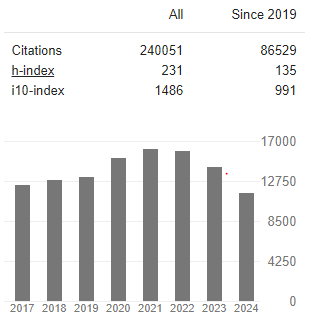Clinicopathologic Significance of G Protein Coupled Receptor 81 in Hepatocellular Carcinoma
Abstract
Hye Won Lee, Jee Young Park, Ilseon Hwang, Byoung Kuk Jang, Keun-Gyu Park and Yu Na Kang
Background/ Aims: Lactate functions as a metabolic key player in cancer in various aspects. G-protein coupled receptor 81 (GPR81), a cell surface lactate receptor, is involved in the metabolism of lactate. However, only a few studies have been conducted on GPR81 expression in cancer, especially hepatocellular carcinoma (HCC). The present study aims to identify the clinical significance of GPR81 expression in HCC and its role as a prognostic factor.
Methods: Tissues were obtained from 197 patients who had undergone surgery for HCC. GPR81 expression level was assessed by immunohistochemistry. And the function of GPR81 on HCC cell growth and mobility was explored through cell line studies.
Results: GPR81 was overexpressed in the HepG2, Huh7, SNU182 and SK-Hep1 HCC cell lines and HCC tissues compared with that in the THLE-2 normal liver cell lines. Furthermore, high GPR81 expression levels were correlated significantly with disease recurrence. In addition, because of significant differences in cancer proliferation, migration, and invasion depending on the GPR81 expression level in various HCC cell line studies, GPR81 is believed to play a role in promoting aggressive cancer cell behavior.
Conclusions: As such, GPR81 expression level was determined to be a useful prognostic factor for predicting HCC progression. The present study is the first to report on GPR81 expression in HCC and its significance. Henceforth, GPR81 is expected to become a highly valuable candidate for future target therapy.



